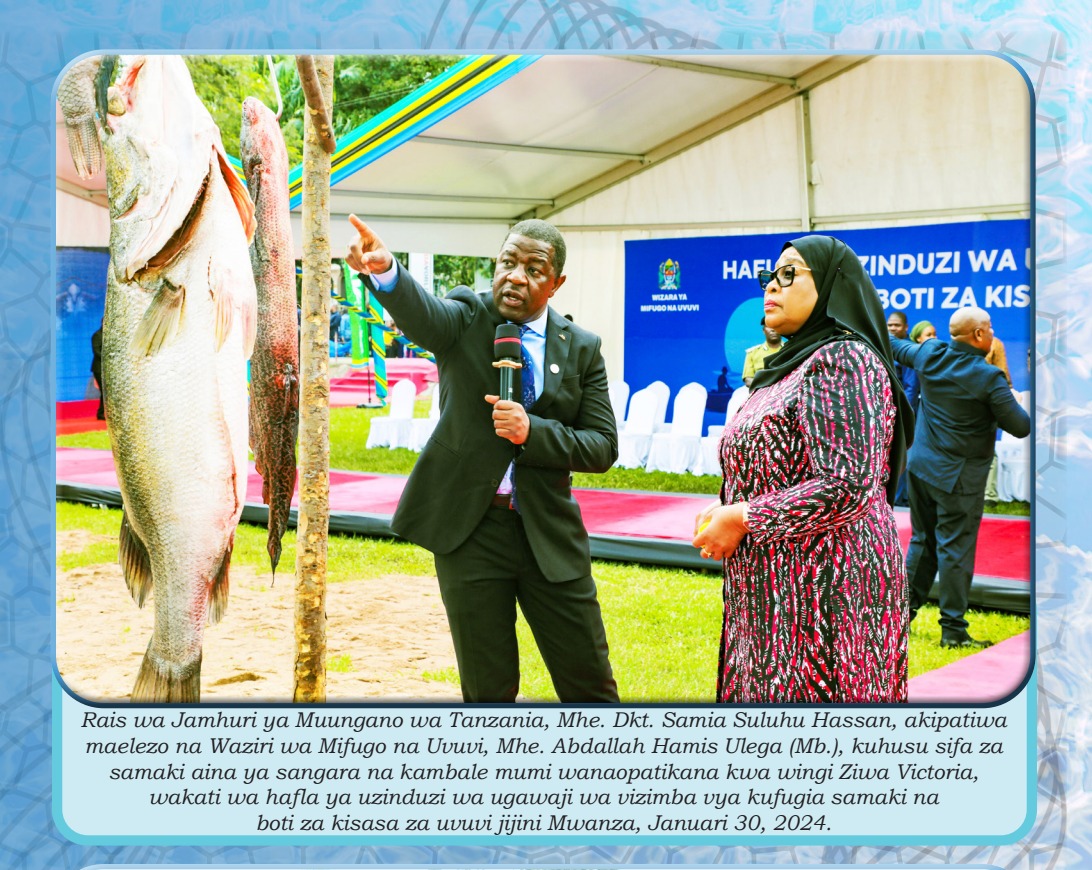In 2024/5 budget speech delivered by Hon. Abdallah Hamis Ulega (MP), Minister of Livestock and Fisheries, the government’s commitment to environmental sustainability and climate change mitigation in the livestock sector was prominently featured. The budget outlines several initiatives aimed at addressing the impacts of climate change and promoting sustainable practices in livestock farming.
One of the key initiatives highlighted in the budget is the improvement of pasture management. Proper pasture management is essential for ensuring that livestock have access to adequate and nutritious forage throughout the year. The government has allocated funds for the establishment and maintenance of community grazing schemes. These schemes aim to improve the management of communal pastures, prevent overgrazing, and enhance the productivity of grazing lands. By promoting sustainable pasture management practices, the government aims to ensure that livestock farmers can maintain healthy and productive herds even in the face of climate challenges.
The production of drought-resistant forage is another significant step mentioned in the budget. Climate change has led to more frequent and severe droughts, which can devastate pasture lands and reduce the availability of forage for livestock. The government is investing in the production and distribution of drought-resistant forage varieties that can withstand harsh conditions and provide reliable feed for livestock. These forage varieties are being developed through research and collaboration with agricultural institutions. By promoting the use of drought-resistant forage, the government aims to enhance the resilience of the livestock sector to climate change.
The budget also emphasizes the importance of controlling livestock diseases as part of climate change mitigation efforts. Climate change can increase the incidence of livestock diseases by creating favorable conditions for disease vectors. The government has initiated extensive vaccination campaigns to prevent the spread of common livestock diseases. By April 2024, a total of 616,070,986 doses had been used to vaccinate livestock against 13 priority diseases. These vaccination campaigns are crucial for maintaining the health of livestock and preventing economic losses due to disease outbreaks. The government is also enhancing its disease surveillance and response capabilities to ensure that any outbreaks are quickly detected and contained.
Water management is another critical component of the government’s strategy to promote environmental sustainability in the livestock sector. The budget includes initiatives to improve water access and management for livestock. This involves the construction and rehabilitation of water points, boreholes, and reservoirs in key livestock farming areas. These water sources provide a reliable supply of clean water for livestock, reducing the impact of droughts and water scarcity. By ensuring that livestock have access to adequate water, the government aims to improve animal health and productivity.
The budget speech by Hon. Abdallah Hamis Ulega (MP) also highlighted the importance of reducing greenhouse gas emissions from the livestock sector. Livestock farming is a significant source of methane, a potent greenhouse gas that contributes to climate change. The government is promoting practices that reduce methane emissions, such as improved feeding practices, better manure management, and the use of methane-reducing feed additives. These practices not only help mitigate climate change but also improve the efficiency and productivity of livestock farming.
Public awareness and education are vital for promoting environmental sustainability in the livestock sector. The budget includes initiatives to raise awareness about the importance of sustainable practices and to educate farmers on how to implement these practices. This involves the dissemination of information through various channels, including workshops, seminars, and media campaigns. By increasing awareness and knowledge, the government aims to encourage more farmers to adopt sustainable practices and contribute to climate change mitigation efforts.
The government’s efforts to promote environmental sustainability and climate change mitigation are expected to have significant long-term benefits for the livestock sector. Sustainable practices enhance the resilience of livestock farming to climate change, ensuring that farmers can continue to produce food and generate income despite changing environmental conditions. By investing in environmental sustainability, the government aims to protect the livelihoods of livestock farmers and contribute to the overall sustainability and growth of the agricultural sector.
In conclusion, the environmental sustainability and climate change mitigation initiatives outlined in the budget speech by Hon. Abdallah Hamis Ulega (MP) reflect the government’s commitment to addressing the impacts of climate change and promoting sustainable practices in Tanzania’s livestock sector. Through improved pasture management, production of drought-resistant forage, disease control, water management, reduction of greenhouse gas emissions, and public awareness initiatives, the government is taking comprehensive steps to enhance the resilience and sustainability of livestock farming. These initiatives are expected to significantly impact livestock farmers’ livelihoods and contribute to the overall environmental sustainability and economic growth of Tanzania.
